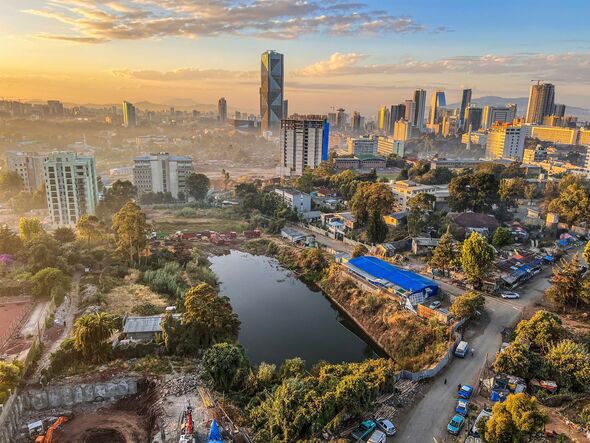Ethiopia is often regarded as the oldest country in Africa, with a history that stretches back at least 160,000 years, if not longer.
Some studies suggest it could be the birthplace of modern humans, with fossils of early hominids found within its borders.
But there is more to Ethiopia than just its ancient past. The country also stands out as one of the most diverse and historically significant nations in the world.
Ethiopia is home to over 80 ethnic groups, each with its own traditions, languages, and cultural heritage.
Unlike many African nations, Ethiopia has never been colonised, maintaining its independence while much of the continent fell under European rule. The only exception was a brief five-year occupation by Benito Mussolini’s Italy between 1936 and 1941, but even then, Ethiopia resisted fiercely.
Ethiopia’s history dates back thousands of years, with the Kingdom of D’mt ruling parts of the region as early as 980 BC.
It later became the powerful Aksumite Empire, which dominated trade routes between Africa, the Middle East, and India.
By the 4th century AD, Aksum had embraced Christianity, making Ethiopia one of the first nations in the world to adopt the religion as its state faith.
The country has also been linked to some of history’s most legendary figures. The Solomonic Dynasty, which ruled Ethiopia for centuries, claimed to descend from the biblical King Solomon and the Queen of Sheba through their son Menelik I.
During the Scramble for Africa in the late 19th century, European powers carved up nearly the entire continent.
But Ethiopia stood firm, defeating Italy at the Battle of Adwa in 1896. Emperor Menelik II led his army to a decisive victory, forcing Italy to recognise Ethiopia’s sovereignty.
However, Mussolini launched a second invasion in 1935, using chemical weapons and brutal tactics to occupy the country.
Emperor Haile Selassie was forced into exile but later appealed to the League of Nations, condemning Italy’s actions.
British and Ethiopian forces eventually drove out the Italians in 1941, restoring the country’s independence.
Today, Ethiopia remains one of the most diverse places on Earth. Its population of over 132 million speaks more than 80 languages, with Amharic serving as the official language.
Christianity and Islam are the dominant religions, but indigenous beliefs are still practiced in some regions.
The country’s landscapes are just as varied, ranging from the Simien Mountains and Great Rift Valley to the scorching Danakil Depression, one of the hottest places on the planet.
Ethiopia is also home to Lalibela’s rock-hewn churches, Lake Tana’s monasteries, and the ancient obelisks of Aksum.
